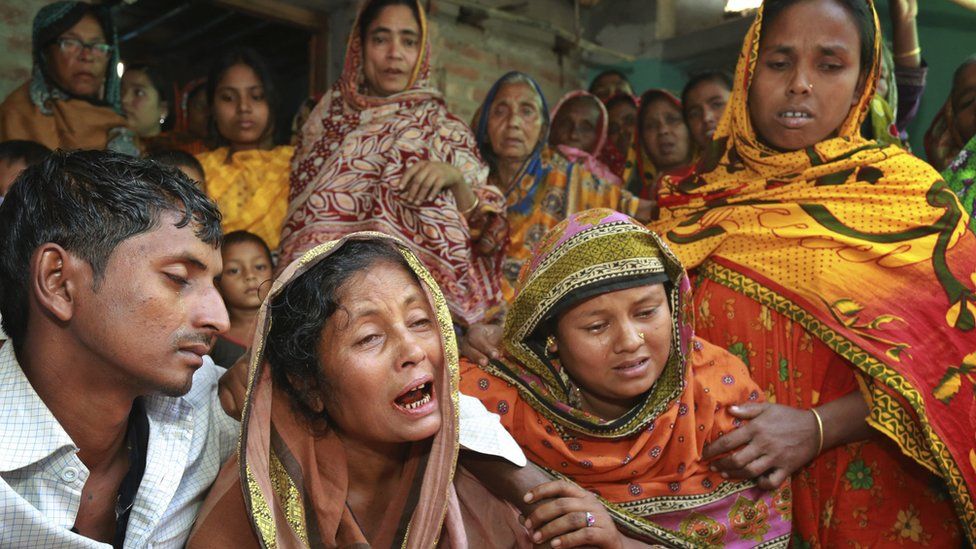Bangladesh is mostly Sunni, with a small Shia community residing in urban areas. Bangladesh, a South Asian country, is predominantly Muslim with Islam being the official religion.
The majority of Muslims in Bangladesh are Sunni, following the Hanafi school of fiqh. However, there is also a small Shia community residing in urban areas. Bangladesh’s Constitution guarantees the freedom of religion and allows the practice of other religions.
The country has a rich cultural and religious heritage, with a diverse population that includes Hindus, Buddhists, and Christians, among others. Despite occasional incidents of sectarian violence, Bangladesh continues to be a peaceful and tolerant society with a rich Islamic tradition.
The Religious Landscape Of Bangladesh
In Bangladesh, the majority of Muslims adhere to the Sunni sect, while there is a small Shia community, primarily residing in urban areas. The religious landscape reflects a diverse Muslim population within the country.
According to various sources, including Wikipedia and Pew Research Center, most Muslims in Bangladesh identify with the Sunni sect of Islam. However, there is also a small Shia community in the country, mainly residing in urban areas. It is important to note that Sufism, a mystical branch of Islam, is also popular and influential among Sunnis in Bangladesh. While Bangladesh is a de facto Islamic country, its constitution recognizes the freedom of religion and prohibits discrimination on religious grounds. The minority communities in Bangladesh, such as Hindus, Christians, and Buddhists, also have a presence in the country.
Credit: alochonaa.com
Sunni Islam: The Dominant Faith
Most Muslims in Bangladesh are Sunni, following the Hanafi school of thought. This dominant faith has a significant cultural and societal impact. While there is a small Shia community in urban areas, the majority adhere to Sunni beliefs. Sufism, a popular and influential aspect among Sunnis, holds a notable presence in Bangladesh as well. It’s important to recognize the diverse religious landscape within the country.
The Shia Minority: History And Distribution
|
Most Muslims in Bangladesh are Sunnis, but there is a small Shia community. The majority of Bangladeshis are Sunni, following the Hanafi school of fiqh. The Shia community in Bangladesh is relatively small and mainly resides in urban areas. Historically, the roots of Shia Islam in Bangladesh can be traced back to the Mughal era. However, the Shia population remains a minority compared to the Sunni population in the country. |

Credit: www.pewresearch.org
Sufism’s Role In Bangladeshi Islam
Sufism plays a significant role in Bangladeshi Islam, where the majority follow the Sunni sect. While there is a small Shia community, Sufis in Bangladesh can belong to either Sunni or Shia branches, showcasing a diverse religious landscape within the country.
| Most Muslims in Bangladesh are Sunnis, with a small Shia community residing in urban areas. |
| Sufis play a significant role in Sunni Islam, with notable leaders like Abdul Qadir Gilani. |
Other Islamic Sects And Religious Minorities
Most Muslims in Bangladesh identify with the Sunni sect, with a small Shia community residing mainly in urban areas. The country’s constitution declares it as a secular state, and it is home to other religious minorities such as the Ahmadi and Baha’i communities. Interfaith relations and secularism play significant roles in the religious landscape of Bangladesh.

Credit: www.bbc.com
Constitutional And Legal Status Of Religion
According to the constitution of Bangladesh, the country is a secular nation. However, Islam has a significant influence on the legal and social norms in the country. The majority of Muslims in Bangladesh are Sunni, following the Hanafi school of fiqh. While most Bangladeshis are Sunni, there is also a small Shia community, mainly residing in urban areas. It’s important to note that Bangladesh is a de facto Islamic country, with Islam being the dominant religion. Sufism, a mystical branch of Islam, is also popular and influential among Sunnis in Bangladesh. Therefore, although Bangladesh has a secular constitution, Islam plays a prominent role in shaping the legal and social fabric of the country.
Public Perception And Identity
|
Most Bangladeshis identify as Sunni Muslims, following the Hanafi school of fiqh. There is a small Shia community mainly in urban areas. |
|
While the country is predominantly Muslim, the national identity of Bangladeshis transcends religious affiliations. |
Challenges And Controversies
Bangladesh is predominantly Sunni, with a small Shia community residing in urban areas.
| Most Muslims in Bangladesh are Sunni, with a small Shia community. |
| Sunnis follow the Hanafi school of fiqh, reflecting the country’s Islamic character. |
| Religious pluralism faces challenges amidst sectarian tensions in a predominantly Sunni context. |
| The future of religious diversity in Bangladesh remains a topic of debate. |
Frequently Asked Questions
Is Bangladesh Majority Sunni Or Shia?
The majority of Bangladeshis are Sunni Muslims, with a small Shia community in urban areas.
Is Pakistan Sunni Or Shia?
Most Pakistanis are Sunni Muslims, but there are also significant numbers of Shiʿi Muslims in the country.
Is India Shia Or Sunni?
The majority of Muslims in India are Sunni, but there is also a small Shia community present.
Conclusion
Bangladesh is predominantly Sunni, with a small Shia community, mainly residing in urban areas. Understanding the religious demographics of Bangladesh can help promote religious harmony and understanding within the country. It is important to appreciate the diversity and coexistence of different religious communities in Bangladesh.

